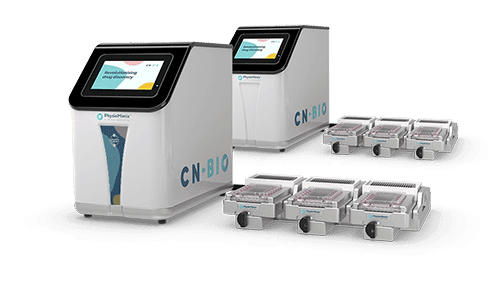A cell-culture technology now being developed by London biotech CN Bio Innovations and its global pharmaceutical company partner, has won one of the scientific world’s premier awards – known as the “Oscars of Innovation”.
A team of Vanderbilt University scientists and engineers led by Professor John P. Wikswo won the R&D 100 Award for their MultiWell MicroFormulator.
The MultiWell MicroFormulator, developed at Vanderbilt and commercialized by CN Bio provides customized real-time formulation, delivery and removal of cell culture media to each well of a 96-well plate for drug delivery, toxicology research, and personalized medicine.
The technology offers a promising alternative to existing fluid-handling systems for long-term cell culture studies and greatly reduces the cost and footprint of such systems.
“This is an excellent example of translational research. Our work on pumps and valves began as an undergraduate research project, was then funded by the Department of Defense and the National Institutes of Health, and is now moving into pharma,” Wikswo said. “It was great to attend the R&D awards ceremony and see all the other projects from industry and national laboratories – they really understand translation.”
The R&D 100 awards—called the “Oscars of Innovation”—recognize the 100 most technologically significant products introduced into the marketplace each year. R&D Magazine’s independent panel of more than 50 judges selects winners. Wikswo and his group won an R&D 100 Award in 1984 for a Neuromagnetic Current Probe.
Wikswo, the founding director of the Vanderbilt Institute for Integrative Biosystems Research and Education (VIIBRE), and Ronald S. Reiserer, VIIBRE laboratory manager and leader of the engineering on the MultiWell MicroFormulator, accepted the award at R&Ds 55th annual awards ceremony in November. Wikswo is also Gordon A. Cain University Professor and A. B. Learned Professor of Living State Physics, and a professor of biomedical engineering, molecular physiology and biophysics, and physics.
Wikswo and his group have worked for the past seven years to develop micropumps and microvalves to provide automatic computer control of fluids in analytical instruments and between two or more human organ mimics. This work led to the MultiWell MicroFormulator, which provides long-term delivery and removal of fluid from a multiwell plate or microplate, each well of which can hold a minute amount of liquid, such as media for cell culture.
“In contrast to bringing lots of well plates to a large and expensive high-throughput screening (HTS) robot, we are bringing a small and low-cost robot to each well plate,” Wikswo said. The MultiWell MicroFormulator also can simulate the function of organs that may be missing from multi-organ-chip systems, such as those that secrete vital hormones.
CN Bio Innovations Ltd., a biotechnology spinoff from Oxford University, has secured a combination of exclusive and non-exclusive rights to microfluidic technologies developed by Wikswo.
On Nov. 1, the company announced a research collaboration with a global biopharmaceutical company to validate the MultiWell MicroFormulator as a new in vitro research tool to predict optimized drug dosing regimens for multi-drug therapies.
David Hughes, CN Bio’s chief technical officer, said, “With these additional technologies, the precision and control we can achieve over conditions in each well of a 96-well plate and in vitro organ-mimics open up exciting new possibilities for modelling human biology and disease in the laboratory.”
VIIBRE’s first 96-Channel MicroFormulator as it is being prepared for shipment in January 2016.
The licensed technologies could replace studies that use mice by mimicking in vivo drug exposure in an in vitro system. The MultiWell MicroFormulator could be used to optimize the conditions for stem cell differentiation, according to CN Bio.
Read the Vanderbilt release here

